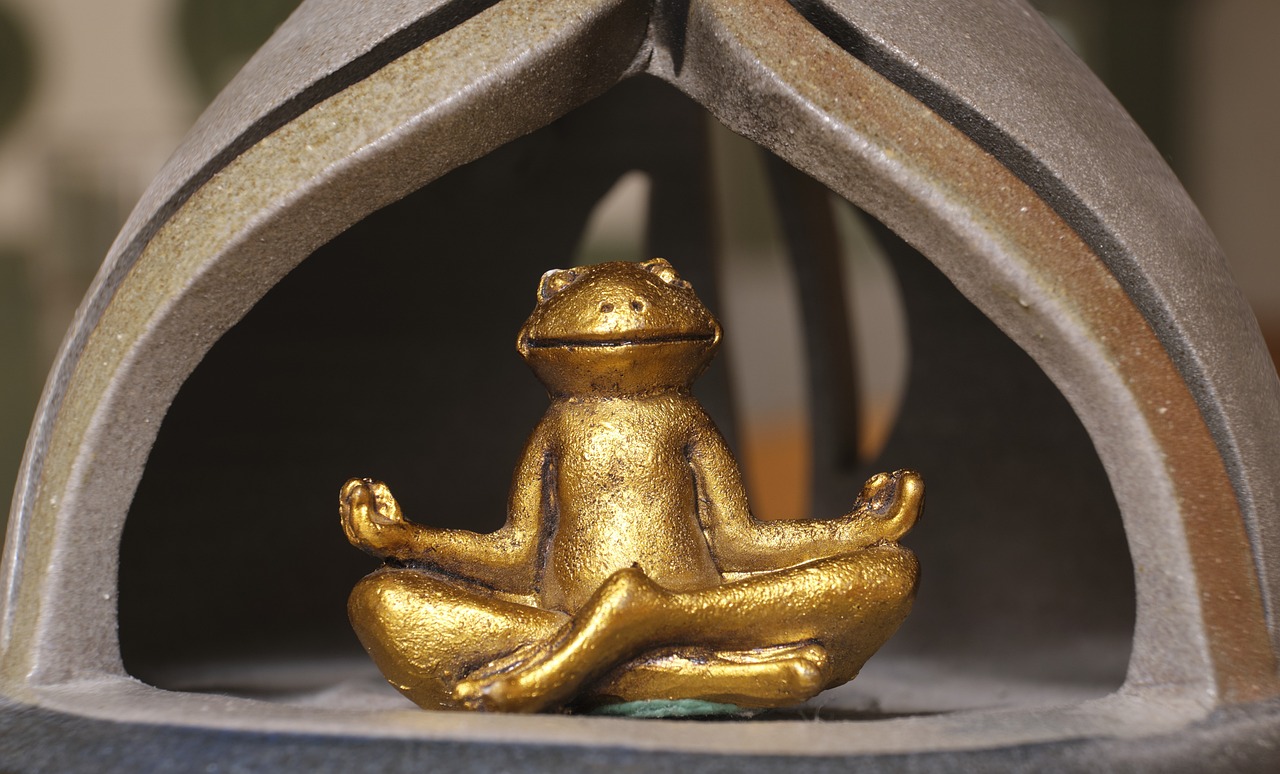The Impact of the Enlightenment on Human Rights
The Enlightenment era, with its revolutionary ideas and philosophical advancements, left an indelible mark on the evolution of human rights principles. It reshaped the very foundation of societal norms and governance, paving the way for a new era of individual liberties and equality.
During the 17th and 18th centuries in Europe, prominent thinkers such as John Locke, Voltaire, and Montesquieu spearheaded the Enlightenment movement. Their ideas laid the groundwork for a paradigm shift in how human rights were perceived and championed.
Central to Enlightenment philosophy was the concept of natural rights, believed to be inherent to every individual. These fundamental rights, encompassing liberty, equality, and property, were considered inalienable and not subject to governmental discretion.
The principles of natural rights, so fervently advocated during the Enlightenment, played a pivotal role in shaping historical documents such as the American Declaration of Independence in 1776. The famous words penned by Thomas Jefferson echoed the spirit of these ideals, emphasizing the importance of individual freedoms.
The influence of Enlightenment ideals extended beyond American shores, profoundly impacting events like the French Revolution of 1789. This period saw the emergence of the Declaration of the Rights of Man and of the Citizen, a seminal document enshrining key human rights principles.
As Enlightenment ideas gained traction, they catalyzed significant legal and political reforms globally. Concepts like the separation of powers, freedom of speech, and due process became integral components of modern governance systems, fostering a more equitable and just society.
The enduring legacy of the Enlightenment is evident in the modern framework of human rights. The Universal Declaration of Human Rights, adopted by the United Nations in 1948, reflects the enduring influence of Enlightenment principles on contemporary notions of individual freedoms and equality.
While the Enlightenment era brought about positive transformations, it also faced criticisms for its Eurocentric perspective and exclusionary tendencies. Critics argue that the ideals of the time were not universally applied and, in some cases, even perpetuated existing inequalities.
Understanding the profound impact of the Enlightenment on human rights is essential in navigating current debates surrounding civil liberties, social justice, and the role of governments in safeguarding individual freedoms. By delving into this historical context, we gain valuable insights into the challenges and opportunities in the ongoing pursuit of a more just and equitable society.

Origins of Enlightenment Thought
The Enlightenment era had a profound influence on the development of human rights principles. This article explores how key Enlightenment ideas shaped the concept of human rights and contributed to the advancement of individual liberties and equality.
The roots of Enlightenment philosophy can be traced back to the 17th and 18th centuries in Europe. Thinkers like John Locke, Voltaire, and Montesquieu laid the groundwork for revolutionary ideas on human rights.
Central to Enlightenment philosophy was the belief in natural rights inherent to all individuals. These rights, including liberty, equality, and property, were seen as fundamental and not granted by governments.
The principles of natural rights championed during the Enlightenment heavily influenced the drafting of the American Declaration of Independence in 1776. Thomas Jefferson's famous words reflect these ideals.
The French Revolution of 1789 was deeply influenced by Enlightenment ideals, leading to the adoption of the Declaration of the Rights of Man and of the Citizen. This document enshrined key human rights principles.
Enlightenment ideas sparked significant legal and political reforms worldwide. Concepts such as the separation of powers, freedom of speech, and due process became central to modern governance systems.
The Enlightenment's emphasis on individual freedoms and equality continues to shape modern human rights frameworks. The Universal Declaration of Human Rights adopted by the UN in 1948 reflects these enduring principles.
Despite its positive impact, the Enlightenment also faced criticisms for its Eurocentrism and exclusionary tendencies. Critics argue that the era's ideals were not universally applied and often perpetuated inequalities.
Understanding the Enlightenment's influence on human rights is crucial in navigating contemporary debates on civil liberties, social justice, and the role of governments in safeguarding individual freedoms.
Q: How did Enlightenment thinkers influence modern concepts of human rights?
A: Enlightenment thinkers laid the foundation for modern human rights by championing natural rights and individual liberties, which continue to shape legal and political systems today.

Concept of Natural Rights
The Enlightenment era heralded a new way of thinking that profoundly impacted the development of human rights principles. At the core of this intellectual movement was the belief in natural rights that were considered inherent to all individuals, transcending geographical boundaries and societal structures. Thinkers of the time, such as John Locke, Voltaire, and Montesquieu, laid the foundation for revolutionary ideas that would shape the concept of human rights for centuries to come.
Central to Enlightenment philosophy was the concept of natural rights, which encompassed fundamental principles like liberty, equality, and property. These rights were believed to be intrinsic to human beings and not subject to the whims of governments or rulers. The idea that every individual possessed these inalienable rights was a radical departure from the prevailing notions of the time.
The influence of Enlightenment thought on the development of human rights can be seen in pivotal historical documents such as the American Declaration of Independence. Crafted in 1776, the Declaration echoed the Enlightenment ideals of natural rights, with Thomas Jefferson famously proclaiming the right to "life, liberty, and the pursuit of happiness" as self-evident truths.
Similarly, the French Revolution of 1789 drew heavily from Enlightenment principles, culminating in the adoption of the Declaration of the Rights of Man and of the Citizen. This landmark document enshrined key human rights principles, emphasizing the equality of all citizens before the law and the protection of individual liberties.
Furthermore, the legacy of Enlightenment thought reverberates in modern legal and political systems, with concepts like the separation of powers, freedom of speech, and due process becoming foundational pillars of governance. The enduring influence of the Enlightenment on human rights is evident in the Universal Declaration of Human Rights, a milestone document adopted by the United Nations in 1948.

Influence on Declaration of Independence
The was a direct result of the Enlightenment's impact on shaping the principles of human rights. During the 18th century, Enlightenment thinkers like John Locke and Montesquieu advocated for natural rights that were inherent to all individuals, not bestowed by governments. These ideas heavily influenced the drafting of the American Declaration of Independence in 1776, where Thomas Jefferson famously declared that all men are created equal and endowed with unalienable rights, such as life, liberty, and the pursuit of happiness.

Impact on French Revolution
The French Revolution of 1789 was a watershed moment deeply influenced by the Enlightenment ideals that had been brewing for decades. The revolutionary fervor that swept through France was fueled by the call for liberty, equality, and fraternity - principles championed by Enlightenment thinkers. This period marked a significant shift in societal norms and governance, as the French populace sought to overthrow the oppressive monarchy and establish a more just and equitable system.
One of the most notable impacts of the Enlightenment on the French Revolution was the Declaration of the Rights of Man and of the Citizen, adopted in 1789. This groundbreaking document enshrined key human rights principles such as the right to liberty, property, security, and resistance to oppression. It laid the foundation for a more egalitarian society, where individuals were recognized as possessing inherent rights that could not be infringed upon by the state.
The philosophical underpinnings of the Enlightenment, with its emphasis on reason, individualism, and progress, provided the intellectual framework for the revolutionary changes that unfolded during the French Revolution. Thinkers like Voltaire, Rousseau, and Diderot had laid the groundwork for challenging traditional authority and advocating for a more democratic and enlightened society.
As the French Revolution unfolded, it became clear that the Enlightenment ideas had permeated all levels of society, inspiring ordinary citizens to demand their rights and freedoms in the face of entrenched power structures. The events of the revolution, with its tumultuous upheavals and radical transformations, served as a testament to the enduring legacy of the Enlightenment in shaping the course of history.

Legal and Political Reforms
The Enlightenment era had a profound influence on the development of human rights principles. This article explores how key Enlightenment ideas shaped the concept of human rights and contributed to the advancement of individual liberties and equality.
The roots of Enlightenment philosophy can be traced back to the 17th and 18th centuries in Europe. Thinkers like John Locke, Voltaire, and Montesquieu laid the groundwork for revolutionary ideas on human rights.
Central to Enlightenment philosophy was the belief in natural rights inherent to all individuals. These rights, including liberty, equality, and property, were seen as fundamental and not granted by governments.
The principles of natural rights championed during the Enlightenment heavily influenced the drafting of the American Declaration of Independence in 1776. Thomas Jefferson's famous words reflect these ideals.
The French Revolution of 1789 was deeply influenced by Enlightenment ideals, leading to the adoption of the Declaration of the Rights of Man and of the Citizen. This document enshrined key human rights principles.
Enlightenment ideas sparked significant legal and political reforms worldwide. Concepts such as the separation of powers, freedom of speech, and due process became central to modern governance systems.
The Enlightenment's emphasis on individual freedoms and equality continues to shape modern human rights frameworks. The Universal Declaration of Human Rights adopted by the UN in 1948 reflects these enduring principles.
Despite its positive impact, the Enlightenment also faced criticisms for its Eurocentrism and exclusionary tendencies. Critics argue that the era's ideals were not universally applied and often perpetuated inequalities.
Understanding the Enlightenment's influence on human rights is crucial in navigating contemporary debates on civil liberties, social justice, and the role of governments in safeguarding individual freedoms.
Stay tuned for the Frequently Asked Questions section to find answers to common queries about the Enlightenment's impact on human rights!

Legacy in Modern Human Rights
The legacy of the Enlightenment in modern human rights is profound and enduring. The principles championed during this intellectual movement continue to shape the foundation of human rights frameworks worldwide. One of the most significant manifestations of this legacy is the Universal Declaration of Human Rights, adopted by the United Nations in 1948. This landmark document enshrines the fundamental rights and freedoms that are considered inherent to all individuals, regardless of nationality, ethnicity, or background.
Through the Universal Declaration of Human Rights, the Enlightenment's emphasis on individual liberties, equality, and dignity is preserved and promoted on a global scale. The document serves as a beacon of hope for those advocating for human rights, providing a common standard by which the treatment of individuals by governments and societies can be measured.
Furthermore, the legacy of the Enlightenment in modern human rights extends beyond legal documents and international agreements. It has influenced the development of institutions, organizations, and movements dedicated to upholding and defending human rights. From grassroots activists to international human rights organizations, the spirit of the Enlightenment lives on in those who strive to protect the rights and dignity of all individuals.
In a world where human rights violations continue to occur, the legacy of the Enlightenment serves as a reminder of the enduring importance of protecting and promoting the rights of every individual. By understanding and embracing the principles that emerged during this transformative period in history, we can work towards creating a more just, equal, and rights-respecting society for all.
Ultimately, the legacy of the Enlightenment in modern human rights is a testament to the power of ideas to shape the course of history and advance the cause of justice and equality. It stands as a testament to the enduring impact of those who dared to challenge the status quo and envision a world where the rights and dignity of all individuals are respected and protected.

Challenges and Criticisms
The Enlightenment era had a profound influence on the development of human rights principles. This article explores how key Enlightenment ideas shaped the concept of human rights and contributed to the advancement of individual liberties and equality.
The roots of Enlightenment philosophy can be traced back to the 17th and 18th centuries in Europe. Thinkers like John Locke, Voltaire, and Montesquieu laid the groundwork for revolutionary ideas on human rights.
Central to Enlightenment philosophy was the belief in natural rights inherent to all individuals. These rights, including liberty, equality, and property, were seen as fundamental and not granted by governments.
The principles of natural rights championed during the Enlightenment heavily influenced the drafting of the American Declaration of Independence in 1776. Thomas Jefferson's famous words reflect these ideals.
The French Revolution of 1789 was deeply influenced by Enlightenment ideals, leading to the adoption of the Declaration of the Rights of Man and of the Citizen. This document enshrined key human rights principles.
Enlightenment ideas sparked significant legal and political reforms worldwide. Concepts such as the separation of powers, freedom of speech, and due process became central to modern governance systems.
The Enlightenment's emphasis on individual freedoms and equality continues to shape modern human rights frameworks. The Universal Declaration of Human Rights adopted by the UN in 1948 reflects these enduring principles.
Despite its positive impact, the Enlightenment also faced criticisms for its Eurocentrism and exclusionary tendencies. Critics argue that the era's ideals were not universally applied and often perpetuated inequalities.
Understanding the Enlightenment's influence on human rights is crucial in navigating contemporary debates on civil liberties, social justice, and the role of governments in safeguarding individual freedoms.

Contemporary Relevance
The of Enlightenment principles on human rights cannot be overstated in today's society. As we grapple with complex issues of civil liberties, social justice, and the role of governments in protecting individual freedoms, the Enlightenment's legacy serves as a guiding light. The emphasis on individual rights and equality continues to influence modern debates and policies, shaping the way we understand and advocate for human rights globally.
One key aspect of the Enlightenment's lies in its ability to inform discussions on the balance between individual freedoms and collective responsibilities. As we navigate challenges such as privacy rights in the digital age, the limits of free speech, and the protection of marginalized communities, the Enlightenment's emphasis on fundamental rights provides a framework for addressing these complex issues.
Moreover, the Enlightenment's legacy underscores the importance of holding governments and institutions accountable for upholding human rights standards. By drawing on the principles of liberty, equality, and justice championed during this era, individuals and organizations can advocate for policies that promote inclusivity, fairness, and respect for human dignity.
In a rapidly changing world marked by technological advancements, globalization, and shifting political landscapes, the Enlightenment's core values of individual autonomy and equality remain as relevant as ever. By embracing these principles and applying them to contemporary challenges, we can work towards creating a more just and equitable society for all.
Frequently Asked Questions
- What is the Enlightenment era?
The Enlightenment era, also known as the Age of Enlightenment, was a period in the 17th and 18th centuries characterized by the rise of intellectual and philosophical ideas centered around reason, individualism, and progress.
- How did Enlightenment philosophy influence human rights?
Enlightenment philosophy played a significant role in shaping the concept of human rights by emphasizing the inherent natural rights of individuals, such as liberty, equality, and property, which laid the foundation for modern human rights principles.
- Which thinkers were key figures in the Enlightenment movement?
Key figures in the Enlightenment movement include John Locke, Voltaire, Montesquieu, and Rousseau, whose ideas on governance, individual rights, and social contract theory greatly influenced the development of human rights principles.
- What were some of the key documents influenced by Enlightenment ideals?
Documents such as the American Declaration of Independence and the French Declaration of the Rights of Man and of the Citizen were heavily influenced by Enlightenment ideals, reflecting principles of individual freedoms and equality.
- How does the Enlightenment era continue to impact modern human rights?
The Enlightenment era's emphasis on individual freedoms, equality, and the rule of law continues to shape modern human rights frameworks, including the Universal Declaration of Human Rights adopted by the United Nations in 1948.



















